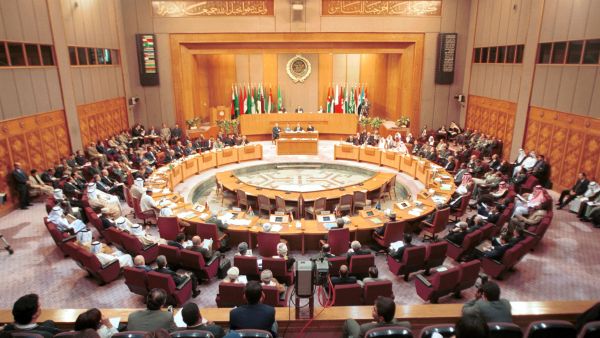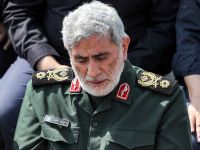The recent announcement by Gulf Cooperation Council (GCC) of agreeing to include Jordan and Morocco as part of the regional alliance shows a new strategic realization of the GCC leadership of the emerging threats and challenges facing their countries.
The recent wide spread civil protest in Bahrain which threatened to overthrow the monarchy amid Iranian saber rattling was viewed by the Gulf States as wakeup call for its security. The crises in Bahrain were perceived by the GCC states as a dangerous omen. It was also understood that the danger emitting from Iran is still lurking which ultimately pushed them to intervene militarily to stabilize Bahrain and restore order.
The GCC decision to consider Jordan and Morocco is driven by its regional security needs vis-à-vis Iran and to insulate its northern flanks, with Jordan, from the current uprisings that are sweeping the failed Arab republican states.
Including Jordan and Morocco in the GCC system will create an all exclusive regional alliance of monarchies that will stand in sharp contrast to other Arab republican states teetering between fragile democracies and absolute dictatorships. The Gulf States have historically depended on regional armies to provide a protective umbrella should the need arise for that. The armies of Pakistan, Egypt, Jordan and Morocco have played at one time or another historical role in providing military backup muscles to the Gulf States at critical moments.
The Gulf States also sought to have American and Western military shield in the form of western military bases located in Bahrain, UAE, Kuwait and Qatar. The fall of Hosni Mubarak regime in Egypt, however, and changes in the US foreign policy strategy under President Barak Obama, have changed all that and are perhaps the real reasons behind the GCC decision to rethink its objectives and membership.
Mr. Obama’s foreign policy doctrine can be characterized as non-interventionist, which makes the GCC states nervous of the prospect of having nuclear-armed Iran dominating both sides of the gulf and control the entire region uncontested. But the doomsday scenario for the Arab Gulf States, and the most dangerous one, would be a deal between the US and Iran at their expense.
Upon his election in 2008, Mr. Obama sought to demilitarize the US foreign policy, and made multilateralism, and working with partners and within the international system, as oppose to Mr. Bush’s unilateralism ,his preferred approach to international relations.
Such strategic shift in the US thinking was evident when the US let its closest ally in the region, Hosni Mubarak, fall under massive street protests, and refusing to take the lead in the NATO campaign against Libyan dictator Moammar Qaddafi. Mr. Obama’s negotiation strategy towards Iran and North Korea, over their nuclear programs, also supports his non-confrontational foreign policy doctrine.
For the Gulf States, given the new political doctrine in Washington, the US or the Europeans can no longer be depended upon to provide help in the time of need. For the GCC countries particularly Saudi Arabia, Jordan is a natural fit and has been counted on historically to provide a much needed military strength. Jordan’s highly trained military and its intelligence services are some of the best in the Arab World. Moreover, Jordan shares its geopolitical strategic posture with the Gulf countries in viewing a nuclear-Iran as a strategic threat to the stability of Arab states. Jordan also shares many values with the monarchies of the Gulf, mainly its political conservatism and its liberal western outlook. Surrounded by larger and more powerful states, Jordan’s foreign policy has always been reserved and non-confrontational and has therefore, developed a survivalist thinking in its dangerous neighborhood.
Jordan is also a natural geographical extension of the Arabian Peninsula, located north of Saudi Arabia and sharing many tribal ties with it. In addition to benefiting from the highly professional Jordanian army, the GCC will boost its population size by seven million of highly educated and experienced diversified work force.
Though Jordan is poorer than most of the GCC countries and will benefit economically from joining the alliance, the GCC states, however, stand to benefit even more from having Jordan in its ranks. Jordan is much more politically stable than its neighbors with highly organized social and civic institutions, labor unions and strong trade associations. Moreover, its professional military is experienced and tested and capable of defending Jordanian territories.
In addition, Jordan faces no strategic threats to its territories from its neighbors, in the foreseeable future, and has no ethnic or sectarian problems. Jordan economic problems, meanwhile, are connected to the general decline and political instability in the whole Arab world mainly due to the instability in Iraq and Israeli aggressive polices in the region.
Nevertheless, expanding the GCC to include other Arab states for whatever reasons, and in any kind of arrangement, shows that the nation-state system in the Arab World has failed to provide either security or development and in some cases it failed to provide both. It also signals the death of the League of Arab States as the primary political organization in the Arab world.
By ALI YOUNES








